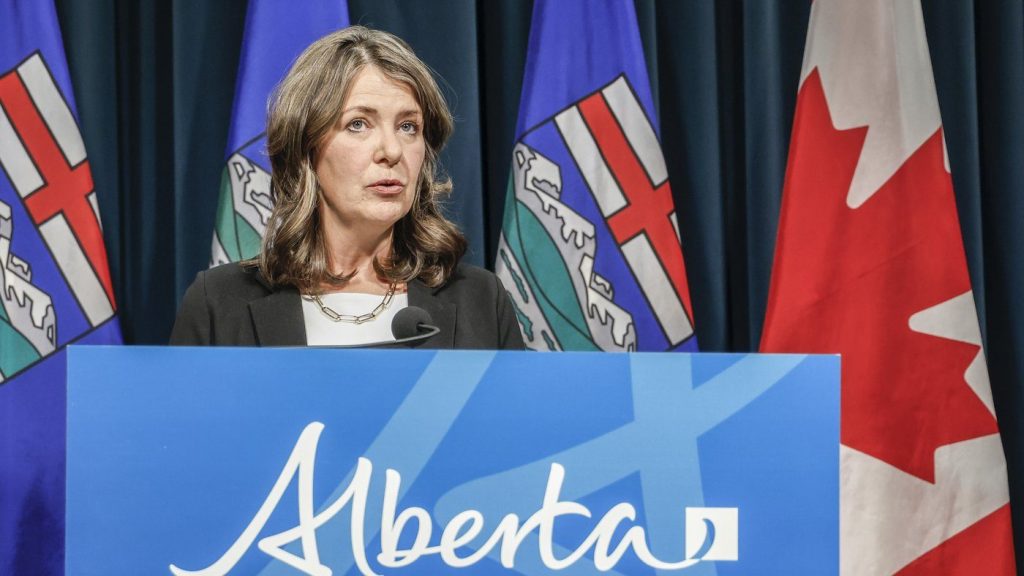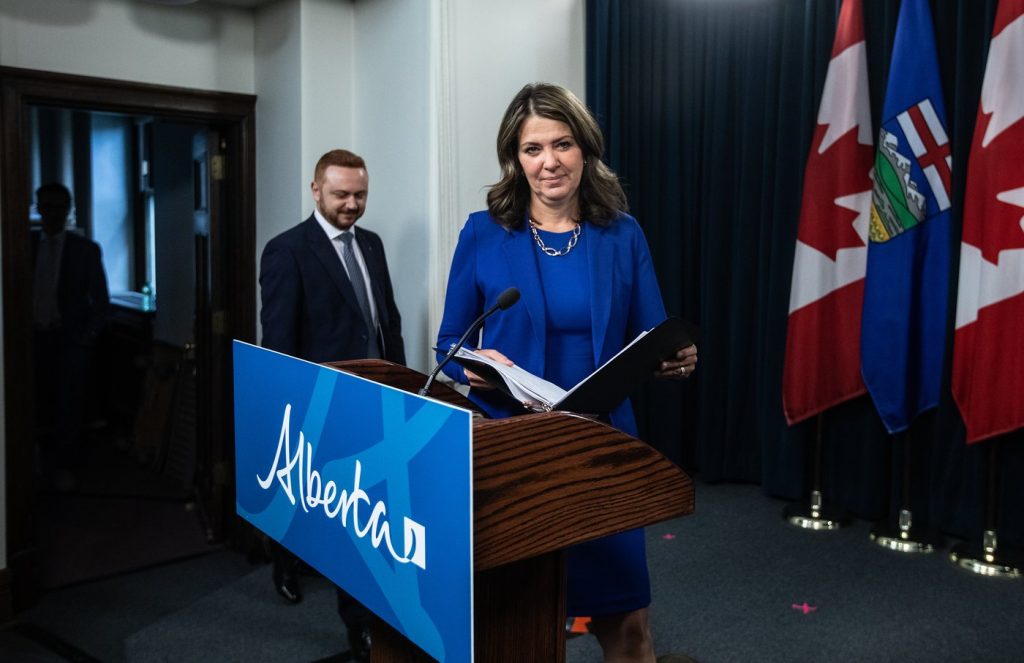Alberta introduces mandatory addiction treatment legislation; critics argue it violates human rights

Posted April 15, 2025 7:10 am.
Last Updated April 15, 2025 6:34 pm.
Alberta has tabled a new bill that will open the door to forced treatment for people who have severe addictions.
The United Conservative Party (UCP) tabled Bill 53 on Tuesday with the aim to keep communities safe while ensuring the most vulnerable people can access much needed recovery supports.
The Compassionate Intervention Act would create a way for parents, guardians, health-care professionals, and police to request a treatment order for those who could harm themselves or others.
Right now, only minors can be forced into treatment. But the bill would make that possible for adults as well.
Premier Danielle Smith says it is not sweeping legislation.
“It is not legislation that applies to every person dealing with addiction or substance abuse,” said Smith. “It is only for the most serious cases where all other options have failed.”
Smith says individuals of “sound mind” will still have the right to choose their own medical intervention, but those who are a harm to themselves or others will not.
“A person who is out of their mind with addiction, overdosing 186 times a year, is not of sound mind,” she said. “We believe that we as a community shouldn’t be watching people slowly kill themselves on the street.
“That’s where we draw the line.”
The bill would allow for people to be held in secure facilities for three months, and for six months in community care centres.
In February, Alberta announced it would spend $180 million to build two, 150-bed, drug addiction treatment centres to support the anticipated influx of patients — one in Edmonton and one in Calgary. It will also open a new youth recovery centre in Alberta’s capital city next year.
“Increasing capacity for youth treatment will be a lifeline for so many families like mine,” said Janelle Watson, whose son is in addiction recovery.
Patients would have access to a variety of mental health and addiction support, as well as intake assessments, medically-supported detox, counselling, and individual and group therapy, according to the province.
Violation of human rights?
Critics of the model have called the treatment involuntary, with the Canadian Public Health Association calling it deeply concerning, warning it would violate human rights and disproportionately impact marginalized groups.
“There are real concerns about rights, about fairness, and about the long-term success of involuntary care,” acknowledged Chief Cody Thomas of Enoch Cree Nation. “But when I look at the addiction, I see people who want help.”
Susan Boone, the mother of a child who was lost to addiction, says the new law provides hope.
“Maybe if the Compassionate Intervention Act had existed then, Ashley would still be here,” Boone said. “Maybe it would have given her the chance she needed.
“When you have a loved one in addiction, you have no control or power of getting them into any kind of recovery or treatment. With the Compassionate Intervention Act, there is that hope that you can get your loved one back.”
The province has said the incoming law would outline specific criteria for a person to be eligible for compassionate intervention assessment and treatment. Furthermore, it says decisions would be made by an independent commission made up of lawyers, doctors, and members of the public, which could include Indigenous Elders.
“The world is watching and we will do it right,” said University of Calgary professor Rob Tanguay. “We will do it with evidence, we will do it with CoRE (Canadian Centre of Recovery Excellence) to ensure it’s done appropriately, with good data and good outcomes.”
The province says the strategy uses evidence-based models adopted from other jurisdictions and tailors them to the needs of Albertans.
The question for many now is: how much of the bill would hold up under legal challenge?
“A court might be satisfied that they’ve justified that rights’ infringement, but it’s entirely possible that a court could come back to them and they could be compelled to make amendments to that legislation,” said Lorian Hardcastle, an assistant professor at the University of Calgary.
If this bill is passed, Alberta will be the first province in Canada to allow forced treatment. But the government says Portugal, Massachusetts, and Washington state have similar laws that are showing positive results.
–With files from Sean Amato in Edmonton
Albertans struggling with opioid addiction can contact the Virtual Opioid Dependency Program (VODP) by calling 1-844-383-7688, seven days a week, from 6 a.m. to midnight daily. VODP provides same-day access to addiction medicine specialists. There is no waitlist.
Residents can also call 211 Alberta for information on services and supports in their community.








